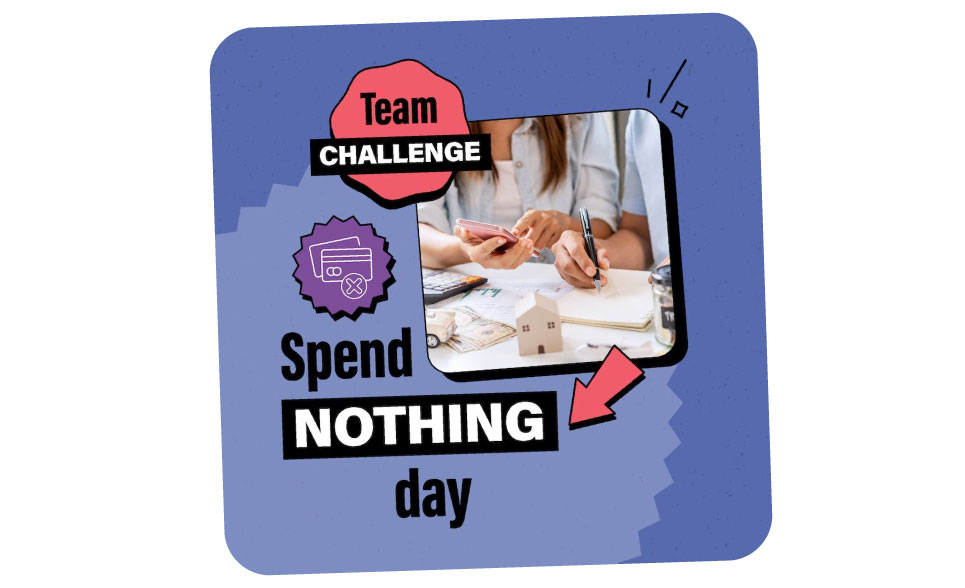
Here's a look at how our day unfolded and the challenges we faced:
The day started out well with the majority of the team working from home, saving on parking fees, milk runs, and lunch expenses. However, working from home also meant they didn't have the immediate support of colleagues sitting next to them.
To make the most of the day, the team planned ahead. For those who were office-based, they paid for parking and extracurricular activities in advance and brought their own packed lunches to the office. Some team members also utilised freebies from loyalty schemes.
However, some had to go the whole day without their usual coffee due to it running out at an unfortunate time (this in itself was a different challenge) ...
So, what have we learnt?
Overall, the Spend Nothing Day challenge was a resounding success! The majority of the team succeeded (with the exception of an emergency dentist appointment we’ll let slide and someone paying for a personal training session – though they were supporting a local businesswoman). Exploring new perspectives on consumption and sustainability was eye-opening and seeing how small changes can have significant impact.
Here are some key takeaways from the team after participating in this challenge:
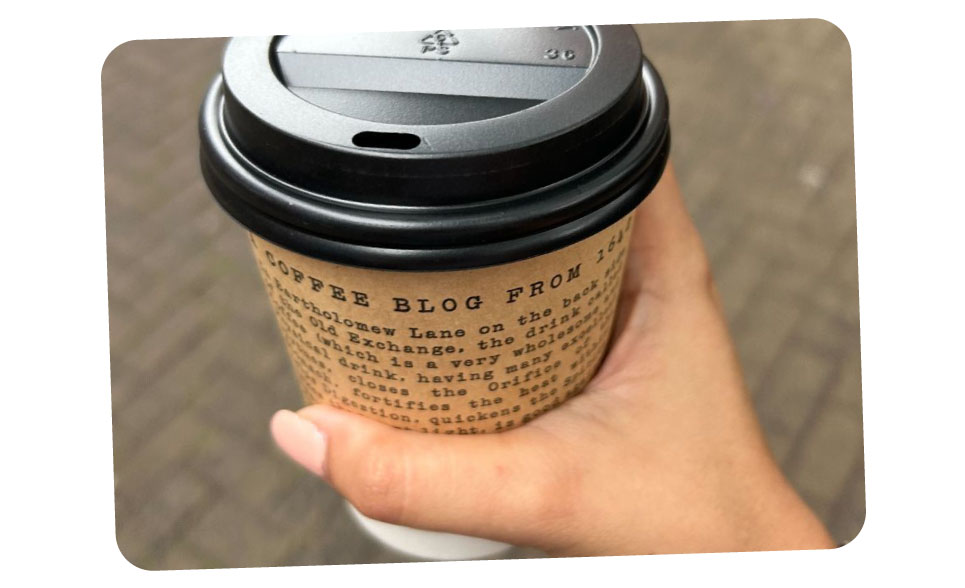
1. Financial Awareness
By consciously avoiding spending for a day, we became more aware of our purchasing habits and differentiate between needs and wants.
The challenge reinforced the importance of planning ahead, knowing we wouldn’t be spending money that day encouraged us to plan meals, transportation, and activities in advance. As the day progressed, we also became more aware of what triggers unnecessary spending, whether that was stress, boredom, or social pressure.
2. Resourcefulness
We learnt to make do with what we had, finding creative ways to solve problems or meet needs without spending money (e.g. not buying more coffee was a want that we could go without, whereas an emergency dentist appointment was necessity). We also managed to utilise what we already had, such as cooking meals from food in the cupboards / fridge, which ultimately reduced food waste. By cooking and preparing meals at home as opposed to eating out, we could also portion control and choose healthier ingredients, providing health benefits.
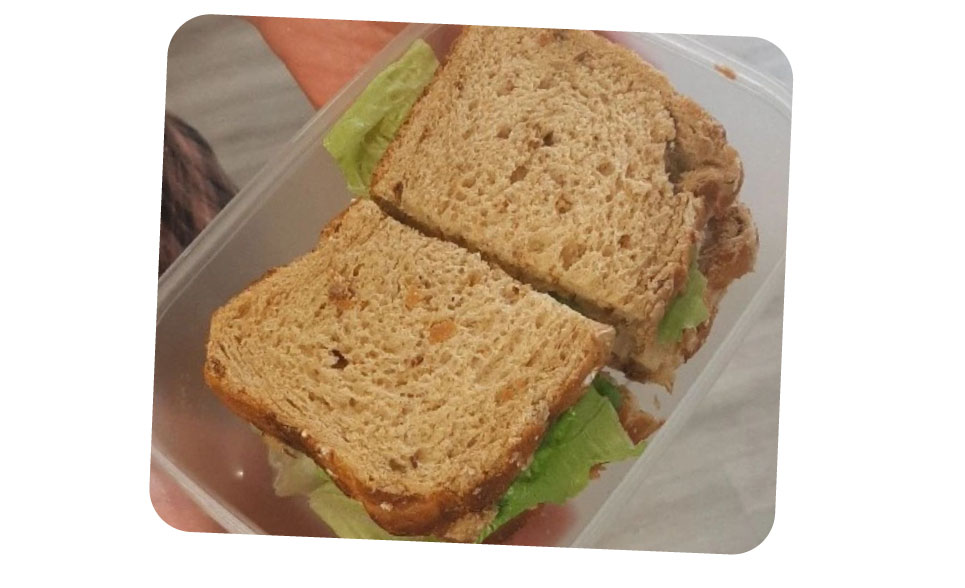
3. Sustainability and Environmental Impact
The day highlighted the impact of consumerism on the environment, encouraging us to have more sustainable living practices. By not buying anything, we contributed to reducing waste, whether it was packaging, food waste, or other disposable items.
The production and disposal of consumer goods contributes to pollution, resource depletion, and climate change. By buying less, we reduce can reduce our carbon footprint.
The ‘BS’ within the challenge:
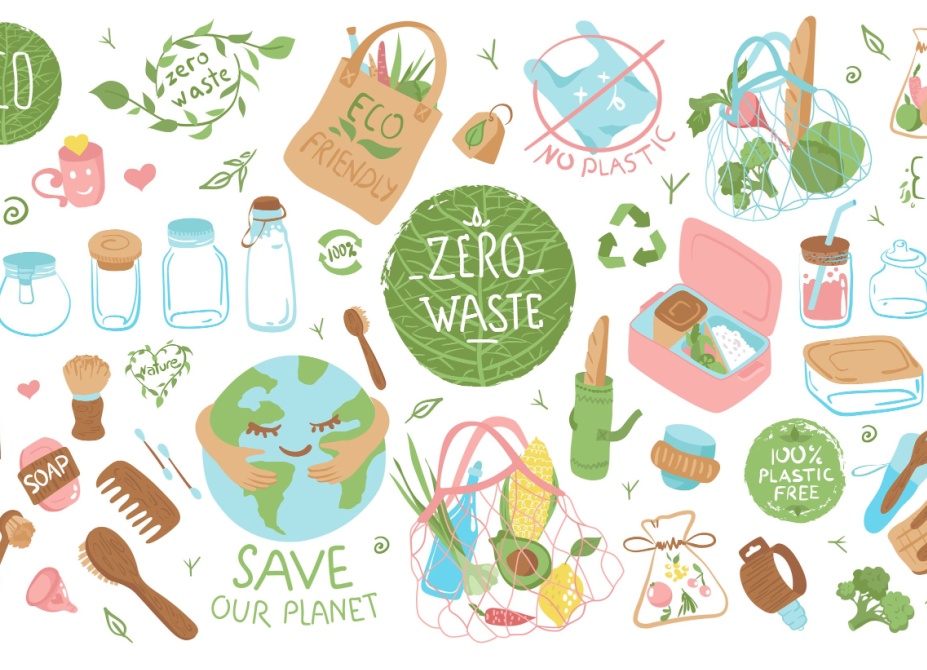
Social Cognitive Theory
By observing and participating in Spend Nothing Day, the team learned from each other’s experiences and strategies for managing without spending, reinforcing the idea that behaviour can be shaped by observing the actions and outcomes of others.
The positive experiences and outcomes shared by the team members further reinforced this behaviour, demonstrating how success stories and practical strategies can inspire and sustain change.
This theory highlights the role of social influence and the interaction between personal factors, environmental factors, and behaviour.
By raising awareness of mindful consumption, highlighting social norms that support sustainable living, and modelling better behaviours for others to follow, we aim to influence others to do the same. By observing others, individuals can adopt new actions and understand their consequences, creating a ripple effect, where positive behaviours are adopted by a larger community.
The challenge also ties into the Theory of Planned Behaviour, which suggests that our intention to engage in a behaviour is influenced by our attitudes, subjective norms, and perceived behavioural control. By choosing to spend nothing for a day, our team’s attitudes towards consumption were positively influenced, reinforcing the idea that sustainable living is both desirable and achievable (i.e., it is in our behavioural control!). This initiative also promoted and established new norms around consumption, demonstrating how collective actions can lead to the adoption of more sustainable practices. Similarly, we can also apply ‘Commitment’ from MINDSPACE, as the team wanted to be consistent with our public commitments and promises.
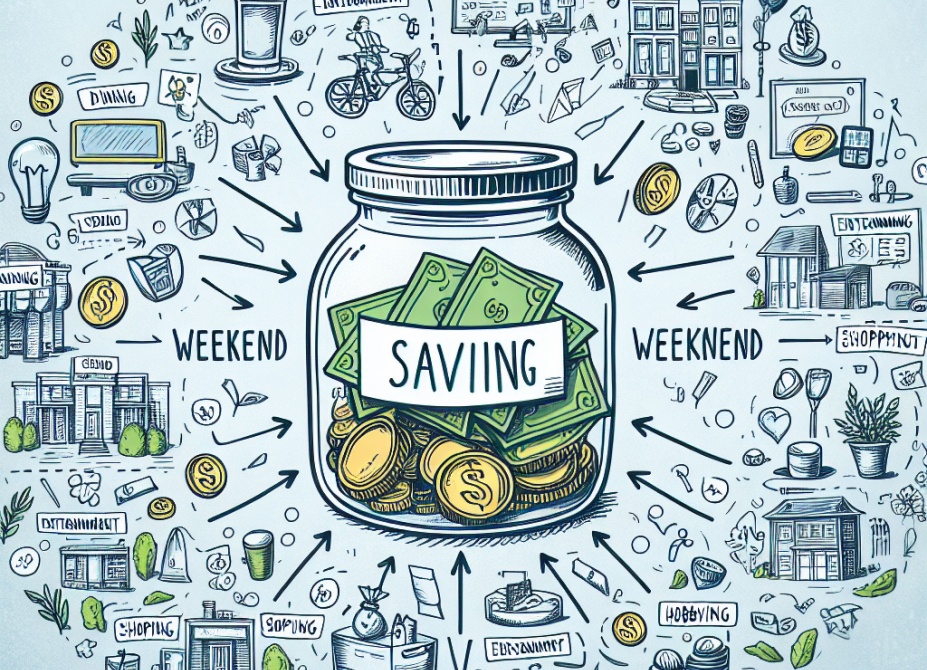
Self-Determination Theory
Self-Determination Theory emphasises the motivation behind our choices, focussing on autonomy, competence, and relatedness. By joining this challenge, we:
- Gained control over our spending (autonomy)
- Developed new skills in frugality (competence)
- Connected with the team over a (friendly!) competition (relatedness)
This experience not only motivated us to continue these behaviours in the future but also reinforced our belief that we can successfully adopt and maintain sustainable practices.
Through this challenge, we've seen firsthand how behavioural science can improve team effectiveness and drive meaningful change. By fostering a culture of mindfulness and sustainability, we’re not just making a difference today but setting a precedent for future behaviour.
Repeatedly participating in challenges like Spend Nothing Days can help us form new, more sustainable spending habits. While one day of abstaining from shopping may not change the world, it can serve as a starting point for a more sustainable and fulfilling lifestyle!
If you would like to drive positive change and influence human behaviour, contact the Social Change team for behavioural science and marketing that moves and motivates people to act.

